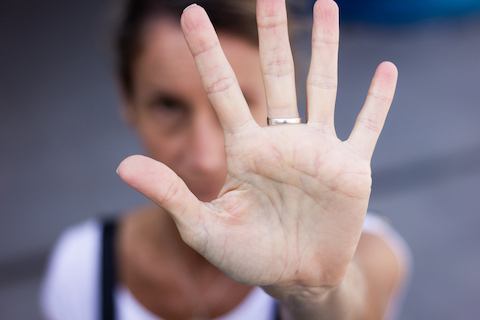November 15, 2021
Do you sometimes get confused about when protecting yourself is loving and when it’s controlling?
 Clients often ask me a question such as the following:
Clients often ask me a question such as the following:
“What’s the difference between protecting or controlling from your wounded self or from your loving adult? Isn’t the loving adult supposed to protect the inner child?”
Yes! But the loving adult protects by taking loving care of yourself and controlling what you can control, which is yourself. The wounded self protects by trying to control others and outcomes, as well as trying to control your painful feelings.
Here is an example of the difference…
Let’s say that you have an actual child, and someone is being mean to your child. The wounded self tends to be very reactive, so as your wounded self, you might yell at the person, threaten them, or even hit them. Your intent would be to control the person.
As your loving adult, you might first let the person know that it isn’t okay to treat your child that way, and if they didn’t stop, then you would take your child away, and you would help your child to not take personally the other person’s unloving behavior. You would control what you can control, which is you.
The same thing happens on the inner level. When someone does something that is upsetting to you, you can either try to control them and get them to change, or you can focus on what is loving to you and take loving care of yourself. When you try to control the other person, you are protecting yourself from your wounded self, and when you take loving action on your own behalf, you are protecting yourself from your loving adult.
The confusion comes in when the intent is to protect rather than to love yourself.
When your intent is to love yourself, you will naturally protect yourself in appropriate ways by taking loving care of yourself, but when your intent is to protect, your wounded self will take over to try to control others, outcomes, and your own feelings.
More confusion can come in when the wounded self is masking as the loving adult and saying things like:
“I’m taking loving care of myself by getting angry at my partner and letting them know they can’t treat me this way,” or “I’m taking loving care of myself by rewarding myself with this donut,” or ‘It’s loving to me to relax with a bottle of wine in the evening. After all, stress is harmful and this is how I de-stress,” when what is really happening is that the wounded self is using anger, food, or alcohol to control another person or your own feelings by numbing out, trying to protect against painful feelings, rather than taking loving care of oneself in the face of these feelings.
Sometimes we do need to control others to protect them or ourselves.
For example, you protect small children by not letting them run in the street. You are controlling them for their health and safety, and it is an adult’s responsibility to exert this control.
If someone is attacking you physically and you know self-defense, then it is certainly loving to yourself to do all you can to protect yourself from being hurt.
Again, it’s all about intent, and the challenge is to not allow the wounded self to convince you that the intent behind numbing or controlling behaviors is to love yourself rather than to control others, outcomes, or your own feelings.
Things get clearer when we consistently open to learning with our higher guidance about what is loving to ourselves. If you were to ask your guidance if the donut or the bottle of wine is in your highest good – and you were connected with your guidance and truly wanting to be loving to yourself, then you would know that avoiding your feelings with addictions isn’t loving to yourself. It’s not that it’s never loving to have a donut or drink wine, but when it’s being used to avoid your feelings, then it’s controlling rather than loving to yourself.
Join Dr. Margaret Paul for her 30-Day at-home Course: “Love Yourself: An Inner Bonding Experience to Heal Anxiety, Depression, Shame, Addictions and Relationships.”


 Listen to Dr. Margaret Paul's interview with
Listen to Dr. Margaret Paul's interview with 

